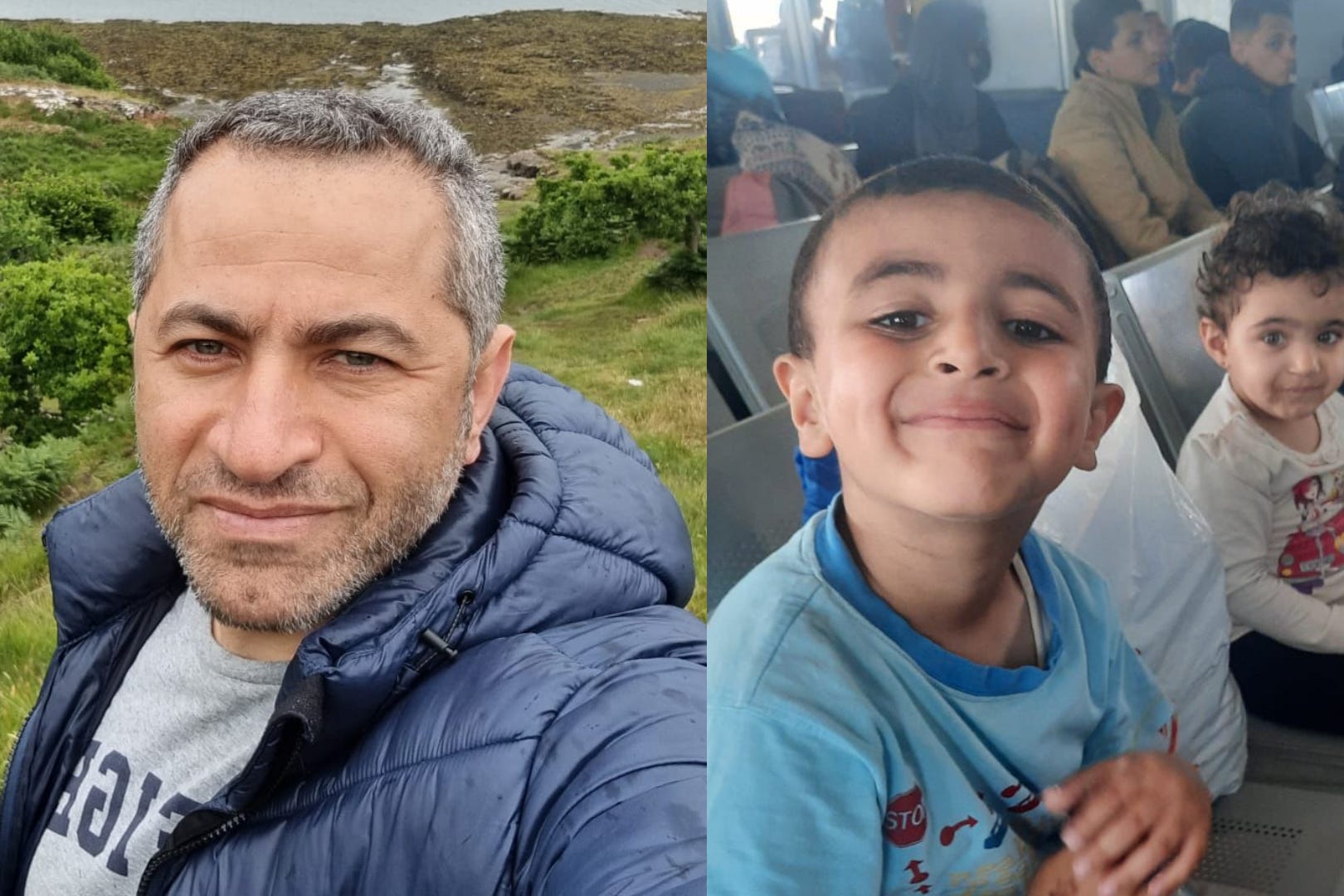British-Palestinian NHS doctor raises £100,000 to get family out of Gaza
Eight of Dr Salim Ghayyda’s family members have fled Gaza but the remaining 24 are trapped inside the region.

A British-Palestinian NHS doctor has raised more than £100,000 to rescue his family members from Gaza but most of them have been unable to leave due to Israel taking control of the Gaza side of the crossing.
Dr Salim Ghayyda, 52, told the PA news agency that his elderly parents: Nabil, 82, and Dalal, 72, and several other family members, including his five-year-old nephew, Nabil, and two-year-old niece, Lujain, were able to leave Gaza before the border closed.
“There is a strong sense of relief that they are safe but it’s bittersweet that our other family members are still caged in Gaza,” he said.
Dr Ghayyda, who works as a paediatrician at Raigmore Hospital in Inverness, said that 24 family members are still stuck in the Gaza Strip and had been living in the southern city of Rafah when Israel ordered them to evacuate the city ahead of a military incursion.
The family members: including a one-year-old boy, are now staying somewhere in the middle of Gaza.
Dr Ghayyda is unsure of their exact location, although he knows that they managed to secure a three bedroom apartment for the four families to stay in.
“It’s a waiting game now. None of us really know what is going to happen,” he said.
Dr Ghayyda said his family members have been enduring “appalling” conditions in Gaza that are “like a horror movie”, having been forced to relocate numerous times with no running water and little food.
He said: “At the start of the war, (my parents) didn’t want to move and then, under pressure – because it became so dangerous, they could die – they moved to the middle of Gaza from Gaza City, and they stayed there.”
They moved several more times, to Khan Younis, Rafah, and back northwards, “to try to get out of harm’s way”, with Dr Ghayyda’s father experiencing several seizures along the way.
“My niece, she’s only 18 months and she’s still in the north of Gaza with my brother and her mum because when they left, the little one was unwell, and they couldn’t leave, so they stayed behind,” Dr Ghayyda said.
“By the time she was better, it was too dangerous for them to go to the south so they are still living there and it’s really, really appalling.
“It’s terrible, what they’re going through. They had to grind animal food to eat and I’ve heard horror stories from my brother. At one stage they had nothing to eat at all.”
Especially in the early days of Israel’s assault on Gaza, the strip would experience frequent blackouts and Dr Ghayyda would lose contact with his family members, which he described as “heart shattering”.
“These were emotionally the most difficult periods because I didn’t hear about them for a week or two and I wondered, are they alive or not,” he said.
Dr Ghayyda, who was born in Gaza and has lived in the UK for more than 20 years, set up the GoFundMe for his family in January because he “couldn’t really wait for them to just be killed or die,” he said.
He said the eight family members who have fled Gaza are feeling “much safer” in Cairo, Egypt, and “the little ones, they couldn’t stop eating because suddenly there was food”.
“It’s still not their home but, at least, they are safe and they are not going to die of starvation or being killed,” he said.
It was “horrible” and “emotionally unbelievable” that he was forced to make a decision about which family members could leave the Gaza Strip and which would stay.
“I’m not god, I’m not a superpower, I’m only a human, I’m only a son, I’m only a brother, and I was made to make this decision about who lives and who doesn’t live, and it’s awful,” he said.
Bookmark popover
Removed from bookmarks